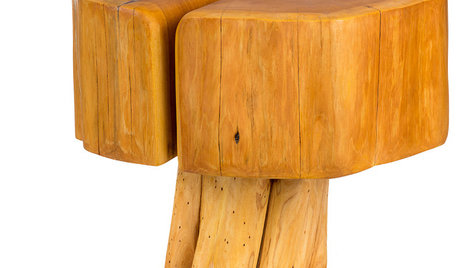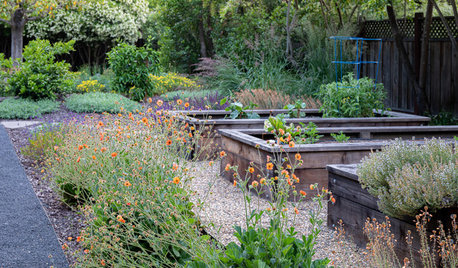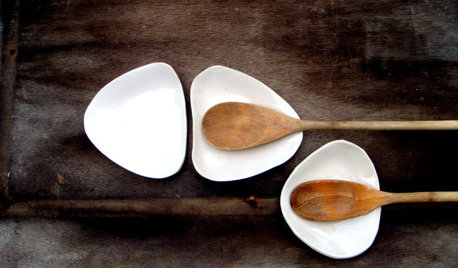Pepper Mash - Is it ok?
legsbig
17 years ago
Related Stories

KITCHEN DESIGN16 Scrumptious Eat-In Kitchens and What They Want You to Serve
Whether apple-pie cheerful or champagne sophisticated, these eat-in kitchens offer ideas to salivate over
Full Story
GRAYColor Guide: How to Work With Light Gray
The hottest new neutral can be cool or warm, formal or casual, and feminine or masculine. Talk about versatile
Full Story
ECLECTIC HOMESHouzz Tour: Room for Fun in a Sophisticated Family Home
Eclectic touches combine with elegance in a London interior designer’s light, bright family residence
Full Story
PRODUCT PICKSGuest Picks: Beautiful Things You Can Feel Good About Buying
Upcycled, ecofriendly or just made responsibly, these home accessories and furniture pieces will keep your conscience clear
Full Story
GARDENING GUIDESEssential Watering Tips for Your Edible Garden
To give your edible plants just what they need, check out these guidelines for how, when and how much to water
Full Story
PRODUCT PICKSGuest Picks: Soothing Accents of White
Calm your color confusion and set up a restful space with white accessories, artwork and lighting
Full Story
KITCHEN DESIGNModern Storage and Sunshine Scare Away the Monster in a Kansas Kitchen
New windows and all-white cabinetry lighten a kitchen that was once dominated by an oversize range hood and inefficient cabinets
Full Story
HOUZZ TOURSMy Houzz: Quirky and Collected Portland Apartment
An army of Ken dolls, a handful of mannequins and a whole lot of estate sale finds create interest in a cozy downtown apartment
Full Story
HOLIDAYSYour Post-Thanksgiving Game Plan
Once you’ve recovered from the big day, take these steps to make welcoming the next round of holiday guests easier
Full StorySponsored







legsbigOriginal Author
jp10550
Related Professionals
Windham Landscape Architects & Landscape Designers · Lakewood Landscape Architects & Landscape Designers · Panama City Landscape Architects & Landscape Designers · Rancho Cordova Landscape Architects & Landscape Designers · Brookline Landscape Contractors · Garland Landscape Contractors · Lemoore Landscape Contractors · Lyndhurst Landscape Contractors · Maywood Landscape Contractors · Olympia Landscape Contractors · Panama City Beach Landscape Contractors · Sun City Center Landscape Contractors · Tacoma Landscape Contractors · York Landscape Contractors · North Aurora Landscape ContractorsJohn__ShowMe__USA
legsbigOriginal Author
danial
legsbigOriginal Author
setzuanfire
soulshine
jp10550
setzuanfire
John__ShowMe__USA
bluewrox
John__ShowMe__USA
lemonrock
John A
hendrik_vanderdekin
shelbyguy
love2troll
lemonrock
redneck_grower
hendrik_vanderdekin
cmpman1974
John A
love2troll
John A
love2troll
John A